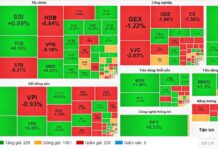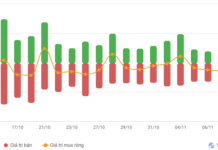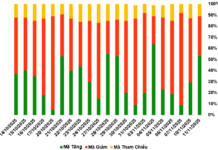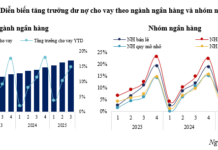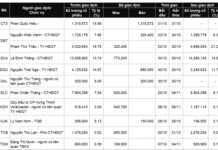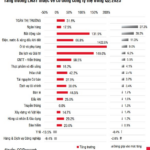As Vietnam’s Land Law 2024 undergoes significant revisions, Ms. Nguyen Quynh Trang, Head of Valuation & Advisory Services at Savills Hanoi, offers her professional insights on the implications of these changes for land valuation transparency and the real estate market.
State-Determined Land Prices: Stabilizing the Market while Avoiding Detachment from Reality
According to the draft, the state will determine land prices instead of solely relying on market principles. This significant adjustment highlights the government’s intention to tighten its regulatory role over land resources, a crucial aspect of urban planning, development, and public budget allocation.
However, Ms. Trang cautions that the policy’s success heavily relies on its implementation and accompanying data: “Without a comprehensive and up-to-date information system that reflects actual transactions, land prices may fail to accurately reflect land usage value. This could impact budget forecasting, create challenges for investors, and lead to inconsistencies across localities, especially in the absence of a nationwide land valuation database.”

Ms. Nguyen Quynh Trang, Head of Valuation & Advisory Services, Savills Hanoi
She also emphasizes that if land prices are set without market considerations, the state may not derive commensurate value from its land assets, directly impacting the efficiency of public budget allocation in the current development phase: “Market prices serve as a fair measure for all involved parties. The next concern is fairness. Land value increases are largely due to state infrastructure investments, so the state deserves to share in this value appreciation, typically through property taxes.”
This perspective highlights that a fair valuation framework can ensure that the state’s regulatory role serves the common good. Ms. Trang believes that proactive state valuation can provide a clearer pricing framework for land acquisition, financial obligations, and speculation control, especially in the context of the current opaque market data. However, to ensure objectivity, the role of independent valuation organizations and reference to factual data are indispensable.
Separating Roles in the Valuation Process: Enhancing Technical Criticism
A novel aspect of the draft is the clear separation of roles between valuation consulting organizations, appraisal councils, and provincial People’s Committees—the decision-making authority. Ms. Trang considers this a positive institutional step toward reducing conflicts of interest and facilitating objective assessments.
However, this mechanism will only be effective if the appraisal councils possess the requisite expertise and the valuation consulting organizations can maintain their independence: “Currently, appraisal councils primarily comprise representatives from local departments, and not all members have in-depth expertise or practical experience in real estate valuation, which could limit the council’s technical criticism capability.”
Savills recommends enhancing the capabilities of consulting organizations, including independent experts in the appraisal councils, and promoting transparency by disclosing valuation processes, data, and criteria to build market trust.
Business Concerns: Lack of Market Reference Mechanisms Hinders Cost Predictability
From a business perspective, there are concerns that eliminating market principles in valuation may make it challenging for investors to predict land use costs, a critical factor in financial planning and risk management.
Ms. Trang agrees that this is a valid worry: “For many businesses, especially long-term investors, land use costs are pivotal in financial planning and risk management. Without market references, the ability to predict land use costs diminishes.”
However, according to Savills, enhancing the state’s management role doesn’t necessarily mean entirely disregarding market factors. Instead, a flexible valuation framework should be established, allowing market references in areas with robust data while maintaining stability in regions lacking comprehensive data infrastructure: “Retaining market references serves as a ‘guiding anchor,’ improving predictability and investment attraction.”
Land Price Tables down to Individual Plots: Necessary Reform but Not without Challenges
The new draft also proposes creating detailed land price tables down to individual plots in areas with digital cadastral maps. This reform is highly regarded as it contributes to valuation transparency and expedites procedures related to land allocation, leasing, revocation, and compensation.
However, Ms. Trang emphasizes that implementing plot-level pricing is not straightforward: “Developing detailed price tables for individual plots still faces challenges, mainly due to the current lack of comprehensive and synchronized national land data infrastructure.”
To ensure these tables accurately reflect reality, multiple layers of data—from cadastral maps, transaction history, zoning, infrastructure, to environmental conditions—need to be integrated into a standardized system with regular updates and quality control mechanisms.
“Instead of a nationwide simultaneous implementation, a phased approach would be more feasible.” Savills suggests that digitally advanced cities like Hanoi, Ho Chi Minh City, and Danang could pioneer this reform and gradually expand to other provinces as they meet the necessary conditions.
The adjustments in the Land Law 2024 draft will be positive steps if accompanied by transparent data infrastructure, clear procedures, and assured professional competence. According to Ms. Trang, valuation policies can only be effective when combining the state’s regulatory role with market factors within a modern governance framework. “Creating land price tables down to individual plots is a progressive reform. If implemented with a well-planned timeline and supported by robust digital infrastructure, this policy will help untangle bottlenecks caused by valuation delays and pave the way for a more transparent and efficient nationwide land valuation system. A significant advantage is that, according to the Land Law 2024, taxable income from land-use right transfers will be calculated based on the official land price tables. This policy encourages people to declare transaction prices closer to reality, thereby laying the foundation for a market-oriented land price data system.” – Ms. Trang concludes.
“VPBank Partners with Vietjet and Visa to Launch the VPBank YoJo Visa Platinum Credit Card”
The VPBank YoJo Visa Platinum card is your passport to a seamless and cost-effective travel experience. With this card, you unlock a world of exciting benefits and perks that elevate your journey to new heights. It’s more than just a financial product – it’s a strategic alliance between three industry leaders in finance, aviation, and payment technology, coming together to take your travel game to the next level.
The Financial Hub: It’s Not About the Number of Skyscrapers or Acres of Land
“Vietnamese enterprises believe that the first and most crucial factor is an open-door policy. Economic experts emphasize that while tax incentives are necessary, they are not sufficient for fostering true competition. Instead, the key lies in creating a revolutionary business environment, one that fosters flexibility and encourages the development of novel financial and technological models.”

